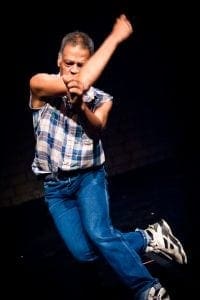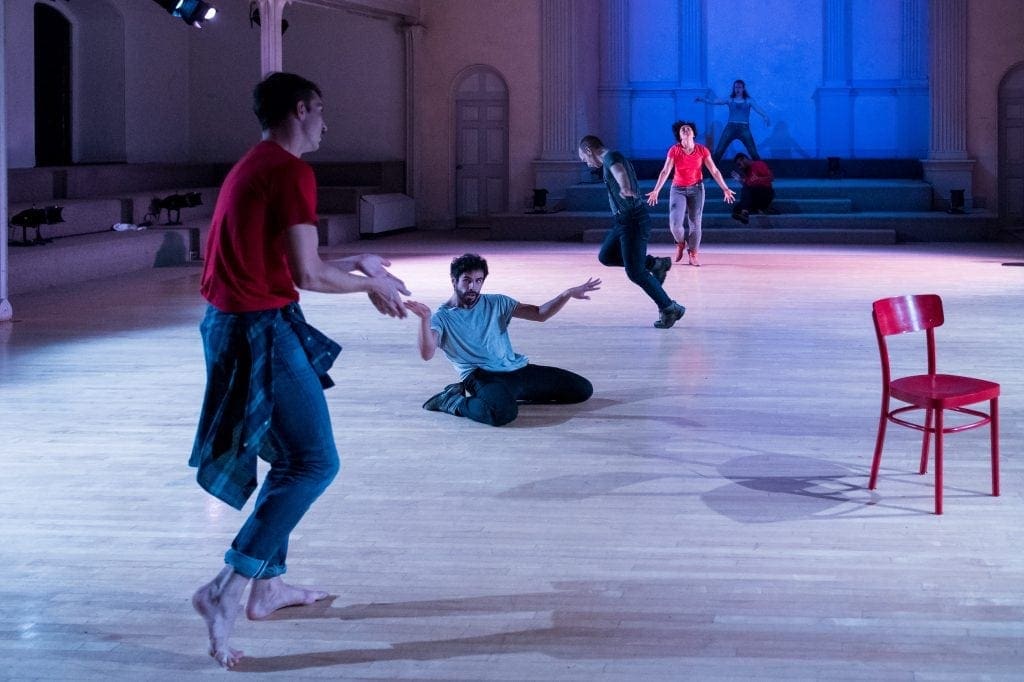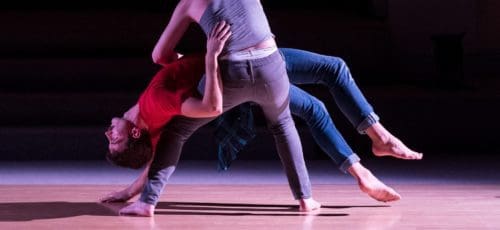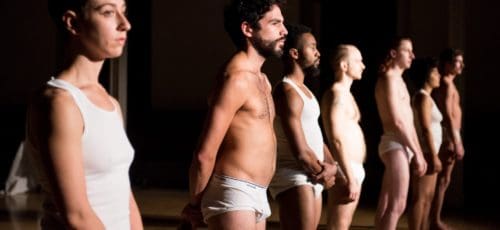Scenes from a Life: Ishmael Houston-Jones on John Bernd and Contemporary Dance
Ishmael Houston-Jones has lived dance history. Now a New York-based choreographer, performer, and teacher, Houston-Jones was a staple in the East Village experimental dance community in the 1980s, having moved to the city from Philadelphia in 1979. One of his collaborators during this period of innovation was John Bernd, the interdisciplinary artist whose work forms the core of Houston-Jones’ upcoming Fringe show Variations on Themes from Lost and Found: Scenes from a Life and other works by John Bernd.
Drawing on his own experience dancing in Bernd’s Lost and Found: Scenes from a Life, as well as the reality of losing an entire generation of artists to the AIDS epidemic, Houston-Jones teamed up with Miguel Gutierrez to create a new work that mashes up seven of Bernd’s pieces. This entirely new performance displays Bernd’s lasting influence on contemporary dance and imagines what his work might have looked like today. We asked Houston-Jones about the inspiration behind the show and about his experience working with the influential choreographer.
FringeArts: What was your personal and professional experience with John Bernd? How do you remember him today?
Ishmael Houston-Jones: John and I were friends, colleagues and co-conspirators in the flourishing East Village experimental dance scene, centered around Performance Space 122 in the 1980s. I danced in all three iterations of his Lost and Found: Scenes from a Life and he participated and supported several pieces of mine and my performance partner Fred Holland. He was an opinionated, vocal, and sometimes stubborn artist who also was very transparent and valued honesty both in his art and in his everyday life (if one can separate those). Our “official” relationship was “not boyfriends.”
FringeArts: What inspired Variations on Themes from Lost and Found: Scenes from a Life and other works by John Bernd?
Ishmael Houston-Jones: I found a photocopied zine that had been printed by a group of about fifteen friends and me who were caregivers during the last seven years of John Bernd’s life. This led to a discussion about loss with Judy Hussie-Taylor, executive director at Danspace Project. Specifically, we talked about what effect the loss of so many from the gay/dance community has had on choreography being created today, especially by queer choreographers.
FringeArts: How do you frame and present Bernd’s work in this work?
Ishmael Houston-Jones: Since I had danced in three of John’s pieces, my initial impulse was to “revive” one of his works. Carol Mullins, current resident lighting designer at Danspace and who had lit John’s work there in the 1980s, told me that that was a ridiculous idea since John was the center of all his work. I then began to look a videos of the body of work he made between 1981 and his death in 1988 and decided to bring in Miguel Gutierrez to help make a mash-up of these seven pieces to make something that wasn’t exactly John’s nor Miguel’s or mine. I brought in composer Nick Hallett to translate John’s original music into the 21st century.
The authorship is shared between John and Miguel and I and the audience seeing it. It is not a memorial. Although the original impulse came about after a conversation about loss in general and losses from AIDS specifically, the thrust of the piece is not about John’s illness, but about his work, and what his work and the work of many from his generation could have become. Miguel often speaks of finding in John Bernd an unknown ancestor.
FringeArts: What were you discussing with your collaborators and dancers during the creation and rehearsal process?
Ishmael Houston-Jones: We showed them most of the video of John’s work which we had. We encouraged them to go to the library and to watch other works and to read his writing. Most of them did. But while we offered biographical and context information about downtown New York in the 1980s, we mostly focused on how to honor the work. I taught them the wordless songs that John composed and used in his work (and that we use); having them record his spoken text had a strong emotional impact and helped them into the dance material.
FringeArts: What do you think John would think of this project?
Ishmael Houston-Jones: I hope he would be pleased, but one can never know. His family came when we performed it in the Bay Area and they were very moved.
Come see Variations on Themes from Lost and Found: Scenes from a Life and other works by John Bernd during the 2018 Fringe Festival, September 14 to September 16! Click here for tickets/more info.
Interview by Christopher Munden. Additional text by Alyssa Kerper.




